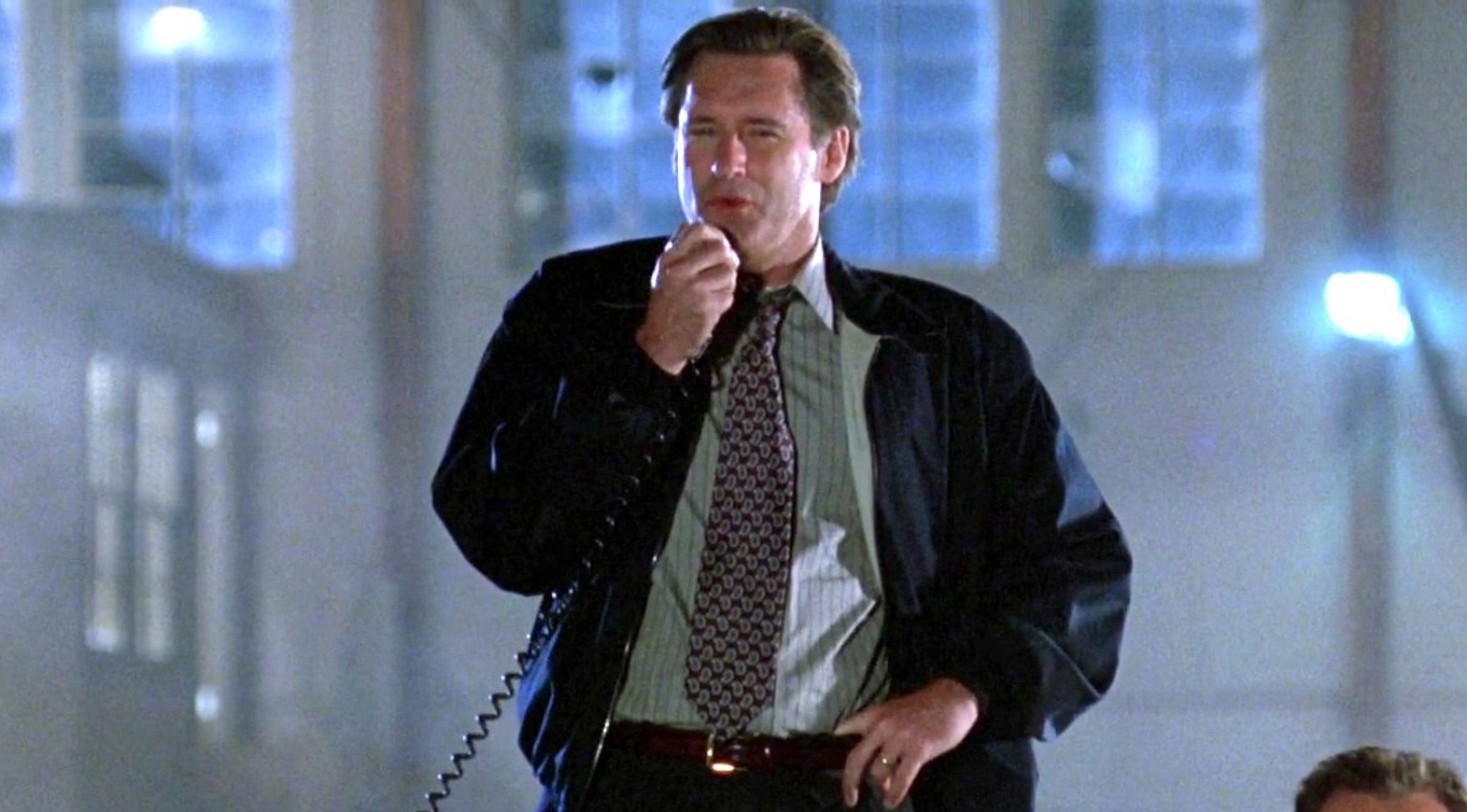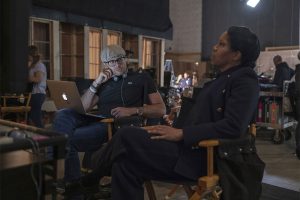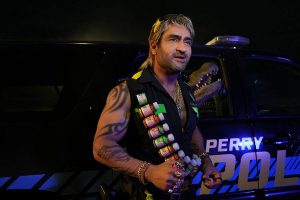
The Fourth of July is here, and with America’s birthday comes always the need to get in the patriotic spirit. There are many ways to do that of course. Fireworks are forever the go-to event; backyard barbecues and grills with hot dogs and hamburgers is another. But sometimes you might just want a bit of celluloid magic to remind you why you should care in the first place.
Whether you’re looking for a comedy or a drama, some ‘80s “USA, USA” cheese, or a genuine exploration of America’s founding, we’ve got you covered with a list of some of the most patriotic of American movies. Enjoy.
1776 (1972)
Let’s begin with the best movie about why today is called “Independence Day:” 1776. While there have been other movies about the Second Continental Congress’ travails during those sweltering days in the summer of ’76, none have truthfully been as entertaining or spirited as this adaptation of the Sherman Edwards musical of the same name. As much a lively play about the battle of egos and ideals, politics and prejudices, that birthed the Declaration of Independence, the 141-minute movie is a political epic wherein characters occasionally burst into witty, joyous song. Anytime Howard Da Silva’s Benjamin Franklin is able to smirk and prance is a particular delight too.
Fifty years on the film has been fairly criticized for distorting the historical record—including by having Thomas Jefferson (Ken Howard) give a far too passionate and misleading speech about the need to abolish slavery despite the fact Jefferson never freed his own enslaved people—but the film still recognizes the Founders not as something greater than deities. Here, as in history, they’re flawed humans prone to error and misjudgment. They also could bring a conviction and fire that changed the world. And it never burned hotter than when William Daniels’ John Adams refused to sit down!
Hamilton (2020)
While on the subject of Revolutionary musicals, one good high-kick deserves another, and Lin-Manuel Miranda’s Hamilton has plenty of that in its spirited ensemble. A passionate and brilliant exercise in historical anachronism and theatrical artifice, Hamilton tells the story of the at onetime most-overlooked “founding father,” our first Treasury Secretary Alexander Hamilton, through the lenses of song, rap, and a zealotry rarely witnessed in either a musical or historical biopic.
The 2020 “film” is actually the edited together recordings of several performances with the original Broadway cast of Hamilton in 2016, but it does a better job than most big screen adaptations (and all previous stage recordings) of capturing the kineticism of Thomas Kail’s direction. It likewise showcases a brilliant, intentionally color-bending cast that includes a preening performance by David Diggs as Thomas Jefferson and a heartbreaking turn by Leslie Odom Jr. as the opportunistic and self-loathing Aaron Burr. The show has been criticized by some for underplaying Hamilton’s complicity in the slave trade (he did not directly participate, but his father-in-law did, and Hamilton’s opinions were more contradictory than the show depicts). Others disparage the very idea of descendants of enslaved people playing the founders. Yet the brilliance of Hamilton is it takes the soaring ideals and rhetoric of America’s genesis and reminds us that this legacy is for all Americans. It’s also just a remarkable piece of theatrical craft that can be both hilarious and tragic, sometimes in the same song.
The Right Stuff (1983)
To jump well ahead in the American story, The Right Stuff is a non-singing(!) love letter and dramatization to the beginning of the space race in the 1950s and ‘60s. Director Philip Kaufman adapts a nonfiction book of the same name, and the acerbic yet enthusiastic tone that comes with it courtesy of author Tom Wolfe. With the verve of a jaded modern journalist, but the American pie-shaped excitement of a baby boomer who grew up listening to John Glenn’s report from orbit, The Right Stuff depicts the space race as a kind of single-man combat between the East and West.
And the West’s champions as played by Sam Shepherd, Scott Glenn, Ed Harris, Dennis Quaid, Fred Ward, and all the rest of The Right Stuff’s cast is an all-American band of heroes (and in some cases opportunists) who are shown to happily risk life and limb so we can have bragging rights of conquering the stars first. It’s filled with bravado, derring-do, and an American strain of chutzpah that leaves you smiling ear to ear.
Stripes (1981)
To get fully away from historical biography, Ivan Reitman’s Stripes is the kind of breezy and broad comedy America could use more of these days. A self-deprecating lark at the military’s expense—but, you know, respectfully—Stripes adapts the cynicism and malaise brought on by the Vietnam War and Watergate into a buddy comedy about two slackers (Bill Murray and Harold Ramis) who join the Army for some laughs. And much to the chagrin of their severe drill sergeant (Warren Oates), giggles are had all around when Murray’s private takes over a platoon that includes American heroes like John Candy. (He’s really Canadian.)
A definite side effect of the impact SNL’s early years had on American comedy, the film starred Murray at the beginning of his movie star run opposite Ramis, who also co-wrote the script after co-writing and directing Murray in Caddyshack. They bring the same smug, shaggy, and maybe even scuzzy energy to the military that could be off-putting if they weren’t so damn funny. And when Murray leads dozens of soldiers in addressing a general with “that’s a fact, Jack!,” it’s damn funny, indeed.
Rocky IV (1985)
It might bear repeating that Rocky Balboa did not end the Cold War. But Rocky IV will make you wish he had. The most ludicrous and giggle-inducing of Sylvester Stallone’s Rocky flicks, Rocky IV is also glorified Reagan era propaganda wherein the plucky American underdog goes to Moscow on Christmas Day to virtually behead a Soviet minotaur in an act of single-armed combat. So when America’s hero, our dear Rock, inevitably ends victorious over Ivan Drago (Dolph Lundgren), complete with being wrapped in an American flag cape, it’s as if our champion has bested theirs, signaling capitalism and democracy’s permanent ascendency.
It’s all so preposterously over-the-top that to the modern eye it’s endearing. This is one of the most ‘80s movies ever, complete with three montages set to synthesized MTV bangers with music video inspired editing, plus a bonafide James Brown musical number, and a goddamn talking robot that recognized AI 40 years early as the glorified rich man’s toy it became. Let the jingoism wash over you like a warm blanket, even as you wonder how Rocky, a character once grounded in ‘70s naturalism, got to the point where he’s a Saturday morning cartoon.
Top Gun: Maverick (2022)
As one of the few sequels to absolutely outclass its predecessor by every conceivable measure, Top Gun: Maverick adapts one of the most patriotic and highest of high-concept ‘80s blockbusters into a film every bit as sweeping and misty-eyed as its predecessor—but now in a genuinely compelling adventure about honor, sacrifice, and duty. Easily the best “legacy sequel” we’ve had to date, Maverick sees Tom Cruise return to his most popular role in order to pass the mantle… to himself! While there is a host of great millennial talent in Maverick, including star-on-the-rise Glen Powell, this is still Cruise’s show, and the film becomes about how Maverick/Cruise can never stay grounded.
Instead Top Gun: Maverick soars through the wide blue yonder with majestic images of Navy jets going 3Gs with actual actors like Cruise, Powell, and Miles Teller in the cockpits and caught losing consciousness on IMAX lenses. Their mission is a combination of the original 1986 Top Gun and George Lucas’ first Star Wars where Cruise must lead a bunch of young guns on a seeming suicide mission where they will fly their jets through an unnamed enemy’s canyon (or trench) to make the impossible shot. The story provides a wonderful ticking clock mechanism that makes all the sunset motorcycle rides, shirtless beachside sporting events, and Jerry Lee Lewis singalongs a lot more poignant and effective. Cruise really might be the last old school movie star and he can even get all Americans on their feet for this one.
Lincoln (2012)
For those looking for a different era of trying times that try men’s souls in American history, Steven Spielberg’s Lincoln has become strangely underrated in the decade-plus since its release. It’s still recognized for featuring a titanic performance by Daniel Day-Lewis, who won an Oscar for his efforts. And Day-Lewis is indeed astonishing in a turn that surpasses the mere gimmickry of prosthetic makeup; he in fact becomes as entirely ingratiating and disarming as a folksy Indianan lawyer with the flair of a raconteur. The actor even excavated Lincoln’s reportedly high-pitched voice and laugh that was so much remarked upon in his lifetime.
But beyond a great approximation of the United States’ greatest president, Lincoln has the good grace to take Honest Abe off his marble pedestal and place him in the muck and sludge of 1860s America. Shrewdly electing to study a mere handful of weeks in the 16th president’s life, as opposed to trying to cram it all in, the movie offers insight into how Lincoln beguiled, cajoled, and, when necessary, strong-armed his way into making a more perfect Union—in this case by rushing the ratification of the 13th Amendment, which constitutionally banned slavery once and for all, before the Civil War ended. It’s a movie about political process and how sausage gets made; something that sounds dry but in the hands of a chef determined to leave a better legacy for generations to come, turns out to be a gift.
Glory (1989)
While on the subject of the Civil War, there has been no finer movie on the national tragedy than Edward Zwick’s Glory. The film takes its historical liberties too, but it also does a better job than any other Hollywood film at bluntly addressing the root cause of a war that left half a million Americans dead. A picture about the slavery of it all, the beauty of Glory is that by telling the oft-ignored (at least in white textbooks) story of the 54th Massachusetts Infantry Regiment, Glory hones in on a moment Lincoln Kirstein famously called “one gallant rush.”
The 54th were sent on a veritable suicide mission when they were asked to charge Fort Wagner. They indeed lost over half their numbers, and the fort was never taken during the war. But when told in its full context, the sacrifices of the first Black regiment in U.S. history is all the more remarkable given how strongly the odds were stacked against them. Making that rush transformed the Union’s perception of Black soldiers and led to the opportunity of hundreds of thousands more being recruited. The film captures this with elegance and grace, and a stirring cast that includes Denzel Washington, Morgan Freeman, and André Braugher. It also features one of composer James Horner’s most magnificent and heartbreaking scores.
Mr. Smith Goes to Washington (1939)
Nothing beats a classic, and Frank Capra’s Mr. Smith Goes to Washington is one of the all-time classics. A story of a small-town country bumpkin (a perfect James Stewart) who is appointed to the U.S. Senate and faces the seduction of money and corruption, including in the hands of his idol and mentor (Claude Rains), the film is beloved for its stirring climax where Mr. Smith filibusters on the Senate floor until Rains’ tainted legislator admits his sins.
Interestingly, the film’s depiction of a jaded Beltway establishment and corrosive influences in our government made Mr. Smith be viewed as a gamble by the studio and as potentially dangerous by the censors. Yet the film’s wholesome insistence on the restoration of American civics and ideals is so endearing that the movie was banned in Nazi Germany and communist states as being dangerous. In reality, it’s just an affecting drama about the way government should work.
Yankee Doodle Dandy (1942)
After watching Michael Curtiz’s toe-tapping, heart-on-its-sleeve approximation of his life, the real George M. Cohan said the movie was so swell he wished he lived a life like that! So as an obviously loose interpretation of the real Cohan’s travails, Yankee Doodle Dandy is one of the finest pieces of World War II patriotism (and some might say propaganda) ever produced in Hollywood. Yet it does accurately capture that Cohan was the song and dance man who wrote hits like “Yankee Doodle Dandy,” “Give My Regards to Broadway,” “You’re a Grand Old Flag,” “Over There,” and any number of other patriotic ditties that became turn-of-the-century anthems, all the way into World War I.
Everything else about the movie is a fabrication, but what is real is James Cagney’s one-of-a-kind dance moves and enthusiasm at playing the antithesis of his tough guy gangster image. Embracing the hoofer moves he picked up on the Vaudeville stage decades earlier, Cagney is sprightly and irresistible as Cohan while skipping across the screen. He’ll even get you to sing along to some of the most flag-waving hits of more than a hundred years ago.
The Grapes of Wrath (1940)
On the flip side of Golden Age Hollywood’s patriotic optimism in Mr. Smith and Yankee Doodle is John Ford’s far more sober-eyed adaptation of the John Steinbeck novel, The Grapes of Wrath. Released around the same time as the two above films, and from a noted Hollywood conservative who made John Wayne an icon, The Grapes of Wrath’s unblinking honesty about the horrors of the Great Depression is all the more remarkably bold.
The film follows the Joad family, a multigenerational clan of farmers who are forced to abandon their ancestral home in dust-ridden Oklahoma in order to find a salvation that never really comes in California. It is at times bleak, and yet the film and star Henry Fonda’s dogged resilience makes for a strangely affecting and reassuring antithesis to many of the other films on this list. The Grapes of Wrath essays one of the grimmest chapters in American history and does not shy away from the generation(s) left behind. But it approaches them with warmth, empathy, and an optimism of spirit that feels wholly American and comforting to a country facing its own challenging times 90 years later.
Independence Day (1996)
Finally, we offer some good old-fashioned American escapism for those who just want to find a little of that old school ‘90s confidence and buoyancy. If so, look no further than Bill Pullman’s boisterous speech about how “we will not go quietly into the night” while facing the threat of imminent alien annihilation. “We’re going to live on! We’re going to survive! Today we celebrate our Independence Day!”
The sequence, complete with a desperately rousing musical score by David Arnold, is calculated and some might say symptomatic of ‘90s summer blockbuster cheese. But damn if it isn’t effective—and every bit as winning as Will Smith’s star-making smile when he says, “Didn’t I promise you some fireworks?” Let the light show commence in this beer and burgers entertainment.
The post The Best Patriotic Movies to Watch this Fourth of July appeared first on Den of Geek.











